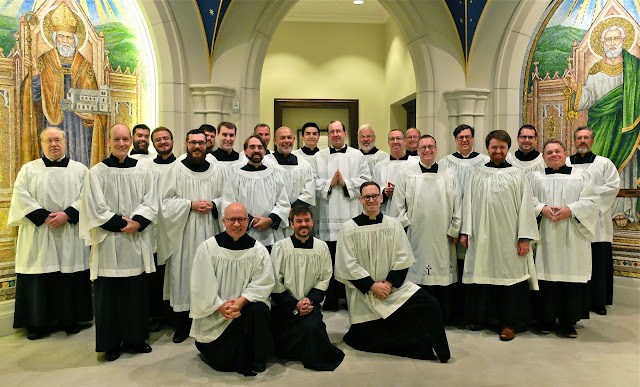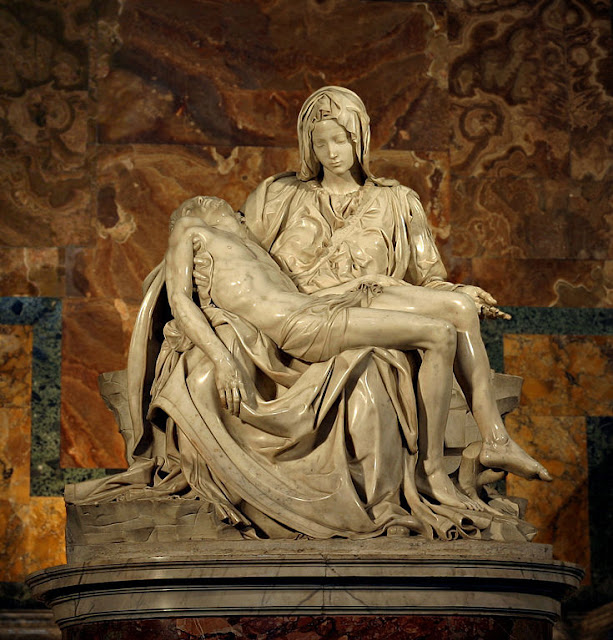Updated Complementary Norms for Personal Ordinariates
A sample of updates.
Vatican News:
The Faithful of the Ordinariate
Article 5
§1. The lay faithful originally of the Anglican tradition who wish to belong to the Ordinariate, after having made their Profession of Faith and received the Sacraments of Initiation, with due regard for Canon 845, are to be entered in the apposite register of the Ordinariate. Those who have received all of the Sacraments of Initiation outside the Ordinariate are not ordinarily eligible for membership, unless they are members of a family belonging to the Ordinariate.
§2. A person who has been baptized in the Catholic Church but who has not completed the Sacraments of Initiation, and subsequently returns to the faith and practice of the Church as a result of the evangelizing mission of the Ordinariate, may be admitted to membership in the Ordinariate and receive the Sacrament of Confirmation or the Sacrament of the Eucharist or both.1
§3. A person, who has been validly baptized in another Ecclesial Community outside of the Catholic Church, and subsequently desires to enter into full communion with the Catholic Church through the evangelizing mission of the Ordinariate, may be admitted to membership in the Ordinariate upon reception into full communion and conferral of the Sacraments of Confirmation and Eucharist. Also, this applies to the case of those not being validly baptized that have come to the faith through the evangelizing mission of the Ordinariate and therefore receive in it all of the sacraments of initiation.
§4. Lay faithful and members of Institutes of Consecrated Life and Societies of Apostolic Life, when they collaborate in pastoral or charitable activities, whether diocesan or parochial, are subject to the Diocesan Bishop or to the pastor of the place; in which case the power of the Diocesan Bishop or pastor is exercised jointly with that of the Ordinary and the pastor of the Ordinariate
The Celebration of Divine Worship
Article 15
§1. Divine Worship, the liturgical form approved by the Holy See for use in the Ordinariate, gives expression to and preserves for Catholic worship the worthy Anglican liturgical patrimony, understood as that which has nourished the Catholic faith throughout the history of the Anglican tradition and prompted aspirations towards ecclesial unity.
§2. Public liturgical celebration according to Divine Worship is restricted to the Personal Ordinariates established under the Apostolic Constitution Anglicanorum coetibus. Any priest incardinated in an Ordinariate may celebrate according to Divine Worship outside the parishes of the Ordinariate when celebrating Mass without a congregation, or publicly with the permission of the rector/pastor of the corresponding church or parish.
§3. In cases of pastoral necessity or in the absence of a priest incardinated in an Ordinariate, any priest incardinated in a Diocese or in an Institute of Consecrated Life or Society of Apostolic Life may celebrate according to Divine Worship for members of the Ordinariate who request it. Any priest incardinated in a Diocese or in an Institute of Consecrated Life or Society of Apostolic Life may concelebrate Mass according to Divine Worship.
1 This paragraph was added to the text of the Complementary Norms according to a decision of the Ordinary Session held on 29 May 2013, approved by Pope Francis on 31 May 2013.
.jpg)





Comments
Post a Comment
Your comments will be appreciated and posted if 1) they are on topic and 2) preserve decorum.
Stand by your word.